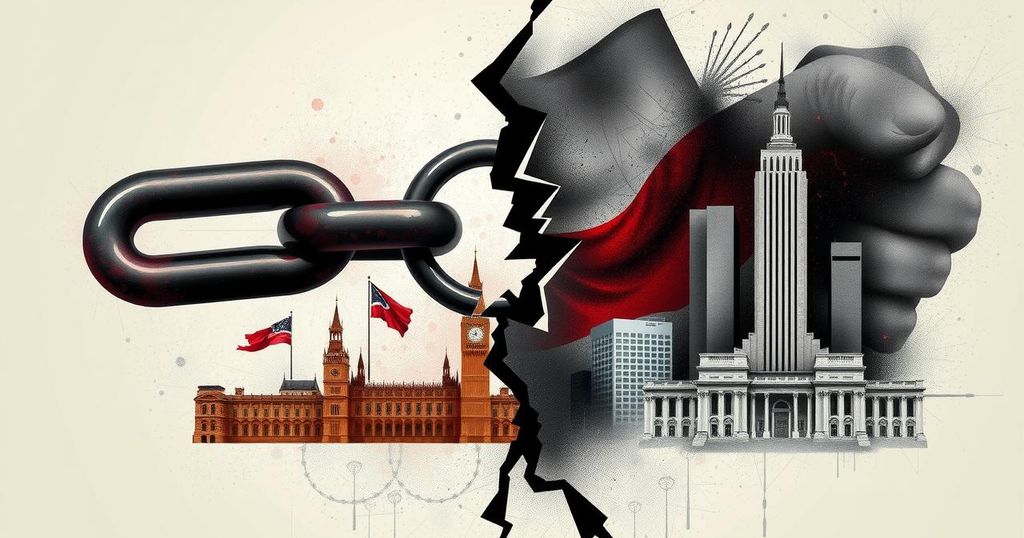Lebanese MP Mohammad Raad condemned US diplomat Morgan Ortagus’s remarks claiming Hezbollah was defeated by Israel, labeling her comments an attack on Lebanese unity and sovereignty. He criticized the US’s influence over Lebanese politics and condemned Israeli aggression, calling for recognition of the true aggressor in the regional conflict.
In response to US Deputy Special Envoy for the Middle East Morgan Ortagus’s statements regarding Hezbollah, Lebanese MP Mohammad Raad expressed strong condemnation, characterizing her remarks as detrimental to national sentiment. Ortagus suggested that Hezbollah was defeated by Israel, thanking the Israeli ally for this outcome, which Raad deemed an affront to Lebanese unity and political integrity. Furthermore, he criticized her assertion that the US had established “clear red lines” regarding participation in the Lebanese government, labeling it an infringement on the nation’s sovereignty and contrary to diplomatic conventions.
Raad described Ortagus’s comments as “filled with hatred and devoid of responsibility,” emphasizing that they reflect hostility towards a Lebanese entity that bravely resisted Israeli aggression. He pointed out that those who discuss corruption must not support terrorism, critiquing the US’s complicity with Israeli actions that undermine its proclaimed values of democracy. Raad condemned American policy for facilitating the Israeli occupation, asserting it belies the principles supposedly upheld by the US administration.
He condemned the violent actions of Israel against both Gaza and Lebanon, urging global recognition of the sponsors of terrorism and the realities of displacement and rights violations occurring under international law violations. Lastly, Raad stated that the true victors are those who reveal the aggressor’s identity, pointing out Israel’s targeting of civilians and infrastructure, while contending it has no legitimate claims to self-defense amid its ongoing occupation.
The remarks by US Deputy Special Envoy Morgan Ortagus, made during a meeting with Lebanese President Joseph Aoun, have sparked controversy for their implications regarding Hezbollah, the Lebanese political and militant group. This incident underscores ongoing tensions between Lebanese factions and US foreign policy in the region, particularly in light of Israel’s military actions and the broader geopolitical landscape. The response from Lebanese officials reflects deep-rooted sentiments regarding national sovereignty, resistance to occupation, and the legitimacy of foreign intervention in domestic affairs.
In summary, MP Mohammad Raad’s response to Morgan Ortagus’s comments illustrates the delicate nature of Lebanese politics amidst US-Israel relations. His statements highlight a call for respect of Lebanese sovereignty and condemnation of foreign interference. The dialogue underscores the tensions surrounding Hezbollah’s role and the complexities of regional conflicts, emphasizing the importance of understanding local perspectives in international diplomacy.
Original Source: en.mehrnews.com






